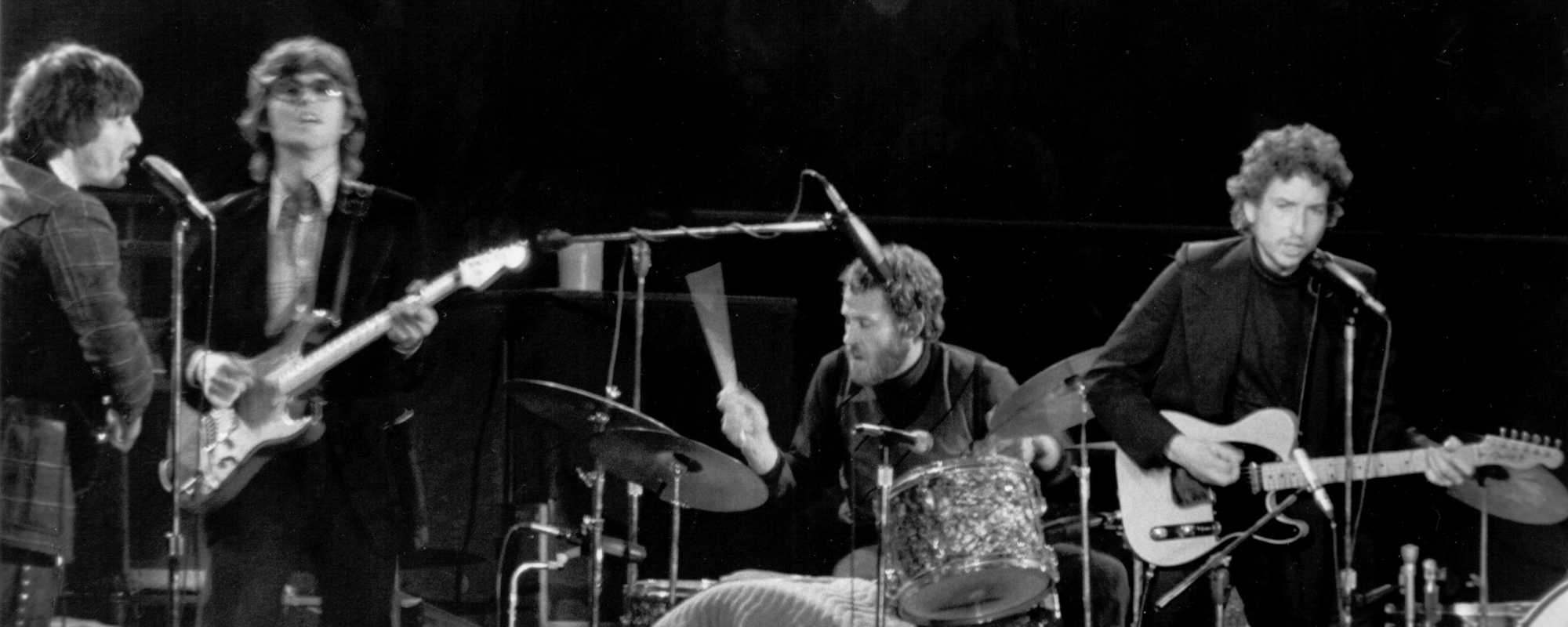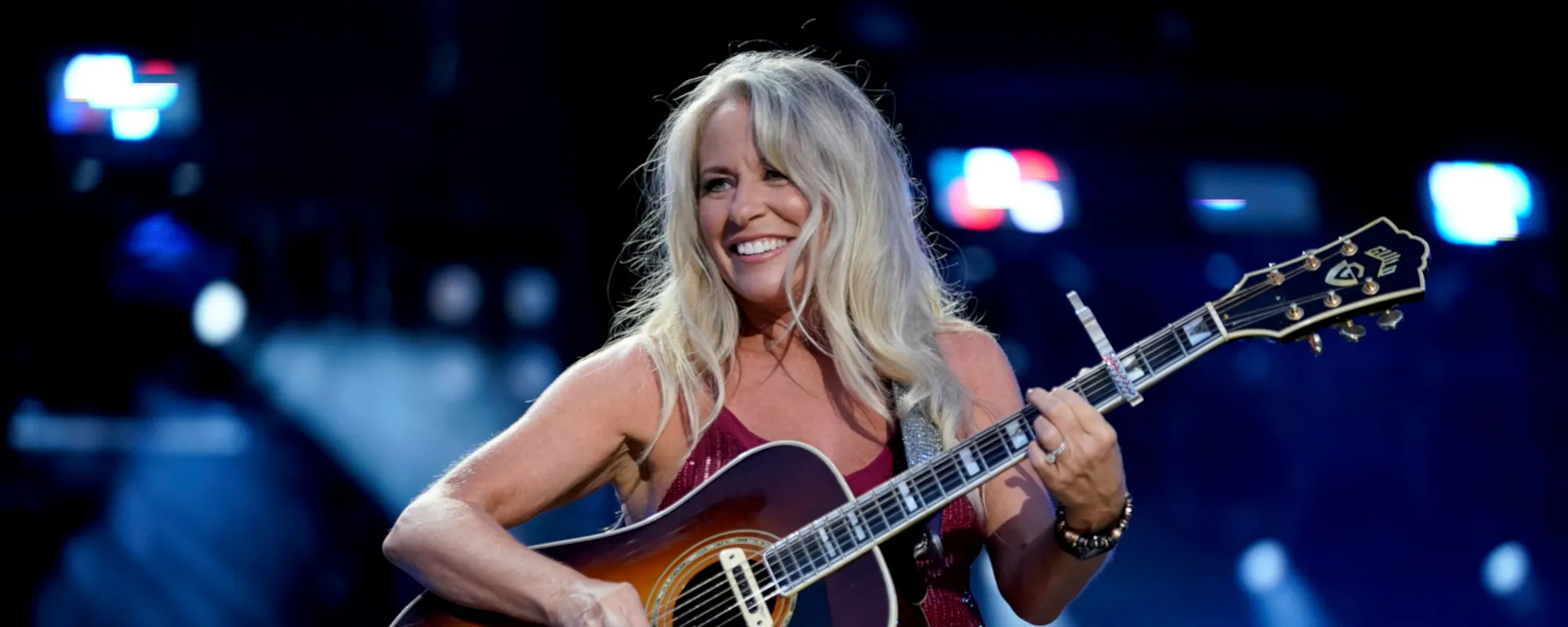While country songwriters are often guilty of going with the flow, Dierks Bentley has a habit of cutting against the grain—even going back to his mischievous 2003 breakout single, “What Was I Thinkin’.” It comes as no surprise that his 11th album, Broken Branches, pays tribute to the outliers of country and beyond. It’s a group he gladly puts himself in.
Videos by American Songwriter
“I like weird, weird’s cool,” the perennial star proclaims, speaking to American Songwriter from his private writing studio on Nashville’s West End. “I don’t want predictable. I want to know a weird guy. I want those songs to be a little weird.”
Boasting eight No.1 albums, 22 No. 1 songs, and over nine billion global streams, “weird” has been working for Bentley all along. He even famously broke with convention to drop a bluegrass album at the height of his early-career momentum (Up On the Ridge, 2010), which some—including him— expected to end his mainstream career. It did not, and with Broken Branches Bentley’s still hanging on country music’s family tree.

Mixing modern sonic muscle with the rootsy refinement of an artist who’s seen it all, Bentley tells American Songwriter that he’s done the debut album, the “on the road” album, the bluegrass album and the reflective album—that would be Riser (2014), which came after his father passed away and his son was born. And while the last two projects found inspiration in Colorado (The Mountain, Gravel & Gold), Broken Branches brings him back home to Tennessee.
In different ways, each song sinks its teeth into the messy truth of day-to-day life, but takes a step back to see the beauty of the forest, not just a tangled bunch of trees.
“I heard this song ‘Broken Branches’ and I was like, ‘Wow, that really resonates with me,’” Bentley says of the track, written by Zach Abend, Beau Bailey, and Graham Barham. “I feel like I’m in a great spot in my career where I’m still looking forward, I’m still doing the biggest tours you can do, and I’m mostly able to look back at some gratitude and perspective on how I got here. In Nashville, we’re all broken branches. We all did something our family had never done before, and here we are, just broken branches that fell off the family tree.”
A wily, smirking anthem with a feel-good honky tonk buzz, the track was eventually recorded with Riley Green and John Anderson, a living legend Bentley calls one of country’s “original” broken branches. Bentley shares that when Anderson recorded his verse, the Country Music Hall of Famer also admitted his RV had broken down, stranding him in a motel for three days.
“I mean, the whole story is just like ‘You’re a member of the Country Music Hall of Fame. You’re driving your RV around to go play gigs? And was that a hotel or was it a motel?’” Bentley says with a laugh. “No, it’s a motel.”
Out of 11 songs, Bentley only co-wrote four—fewer than normal for him. But that was a welcome change. It let the hit maker search Nashville’s songwriting rooms for a few new oddballs, and he succeeded. Tunes like the mellow, emotionally chilled “Cold Beer Can” (feat. Stephen Wilson Jr.) use a clichéd party anthem title to tell a much deeper story. With a slow and shadowy aura, it’s a song about the human connection money can’t buy, and Bentley says it would never have happened without Wilson Jr. (who co-wrote it with Bentley, co-producer Jon Randall, and Luke Dick). A self-described “weird dude” himself, Wilson Jr. is a rising artist-songwriter with a unique energy Bentley couldn’t get enough of.

“Actually, right in this room is where I wrote ‘Cold Beer Can,’” he says. “I love tapping into some new artist energy. I did it with Hardy before he had anything really going on. Same with Stephen Wilson Jr. Those songs really contribute a lot to the sense of community.”
Elsewhere, tunes like “Something Worth Fixing” (Bentley, Dick, and Wilson Jr.) and “Standing In the Sun” (by Kyle Sturrock) continue the theme, but Bentley can’t help breaking molds—even his own. The pop-punk influenced “She Hates Me” (co-written with Chase McGill, Ashley Gorley, and co-producer Ross Copperman) is currently making its way up country radio charts, and he admits it feels like the broken branch of Broken Branches. Oddly enough, or perhaps proving the point, Bentley’s outliers often wind up becoming his biggest songs.
“There’s always one outlier. On the Riser record, I wrote after my dad had passed away and Knox was born, ‘Drunk On a Plane’ was on that record, and I kept trying to get rid of it,” he explains. “It drives me crazy. I wanted the song off. I was like, ‘I love this song, but it does not fit the theme … this is a serious album.’ Luckily, I kept it on there, and on this album, that’s ‘She Hates Me.’”
The serene soundscape of “Off the Map” (Jeremy Bussey, Lauren McLamb, and Adam Wood) imagines stepping away from whatever has you down, even if it’s just a screen. And while “Well, Well Whiskey” (Seth Ennis, Devin Dawson, and Jordan Reynolds) comes with another shot of Bentley’s bluegrass influence, “Never You” (featuring old friend Miranda Lambert) is the first “true duet” the pair has ever done. With an effortless, old-school vocal blend, the tune (by Scooter Carusoe, Copperman, and Ben Williams) pays tribute to a bond with the same easy confidence – but Bentley says its backstory is next-generation.
A signal of the songwriting world to come, Bentley had the song pitched to him as a demo, with a generative AI version of his own voice singing it. The creepy experience was possible because Copperman (who co-produced with Randall and executive producer Mary Hilliard Harrington) had years of Bentley’s raw vocals to run through a program, allowing Bentley to conceptualize what he might sound like in the end. If you’re wondering, he says the AI was “more country” than his real-life version.

“This is just the world we live in, which is interesting for American Songwriter, for anyone out there – this is stuff that’s happening,” he says. “Does it influence the song? Maybe I would have lost songs on this record if I had just heard them as a piano/vocal or a guitar/vocal, and nothing else. … So hello 2025, weird world. Thanks, Sam Altman.”
To him, that’s just more evidence of how much Nashville’s songwriting community has changed. But while he feels “lucky I got a chance to start writing songs with a shoebox tape recorder,” sitting in silence with Brett Beavers for “four, five minutes” before someone broke the tension, he also loves the “inspiring,” sometimes-chaotic vibe of writing with today’s musical mad scientists. Bentley closes Broken Branches on a big-picture view of similar proportion, looking back over all he’s done on the epic acoustic-pop power ballad, “Don’t Cry for Me.” Written with Jim Beavers, Brett’s brother and another of Bentley’s earliest believers, the track continues a partnership which started in 2003, “and here we are 22 years later sitting in his kitchen, two acoustic guitars and just writing songs.”
Tracing his path from Arizona to superstardom, the track and album prove Bentley knows how rare his story is. He finally found a way to put it all in song.
“It’s a song of gratitude about your life, but it really taps back into specific things … and I do like that last track being a sendoff,” he says. “I feel like this is about as close as we can get to having [written] a really great book, and having chapters that all lead to the next.”
Dierks Bentley cover image by Robby Klein











Leave a Reply
Only members can comment. Become a member. Already a member? Log in.